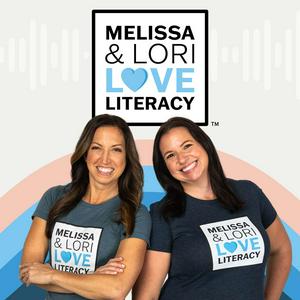Episode 246
Fluency looks different across grade levels, but it always matters.
In this special mashup episode, Melissa and Lori bring together voices from seven classroom teachers, spanning first grade through eighth grade, to show how fluency comes to life in real classrooms. Each teacher shares a best practice they use to support accuracy, automaticity, and expression, always grounded in meaningful reading.
You’ll hear about a range of approaches, including:
Songs, shared reading, and read-alouds in early grades
Partner reading routines that build accountability and support
Performance-based practices like Readers’ Theater
Using oral reading as assessment and feedback
Structuring small groups to support different fluency needs
This episode is full of practical ideas, classroom insight, and teacher wisdom, whether you’re teaching in the primary grades or supporting older readers.
Resources:
Check out our Fluency Listening Guide for links to all of the episodes!
Featured Episodes: First Steps to Fluency: How Young Learners Become Independent Readers with Virginia Quinn-Mooney
Improving Student Reading Growth in Months with Fluency Instruction and Practice with Lorraine Griffith and Lindsay Kemeny
A Classroom Fluency Protocol That Works with Aaron Grossman
Baltimore Secondary Literacy Teachers Talk Fluency with Tanisha Dasmunshi, Emily Jaskowski, and Emery Uwimana
Watch Virginia Teach Fluency in this video
Let’s bring back the magic of song by Tim Rasinski
Lindsay Kemeny YouTube
Partner Reading with Paragraph Shrinking
3 Phases for Fluency by Aaron Grossman
Tim Rasinski's Multidimensional Fluency Rubric
Aaron's website: Just Two
We answer your questions about teaching reading in The Literacy 50-A Q&A Handbook for Teachers: Real-World Answers to Questions About Reading That Keep You Up at Night.
Grab free resources and episode alerts! Sign up for our email list at literacypodcast.com.
Join our community on Facebook, and follow us on Instagram, Facebook, & Twitter.


